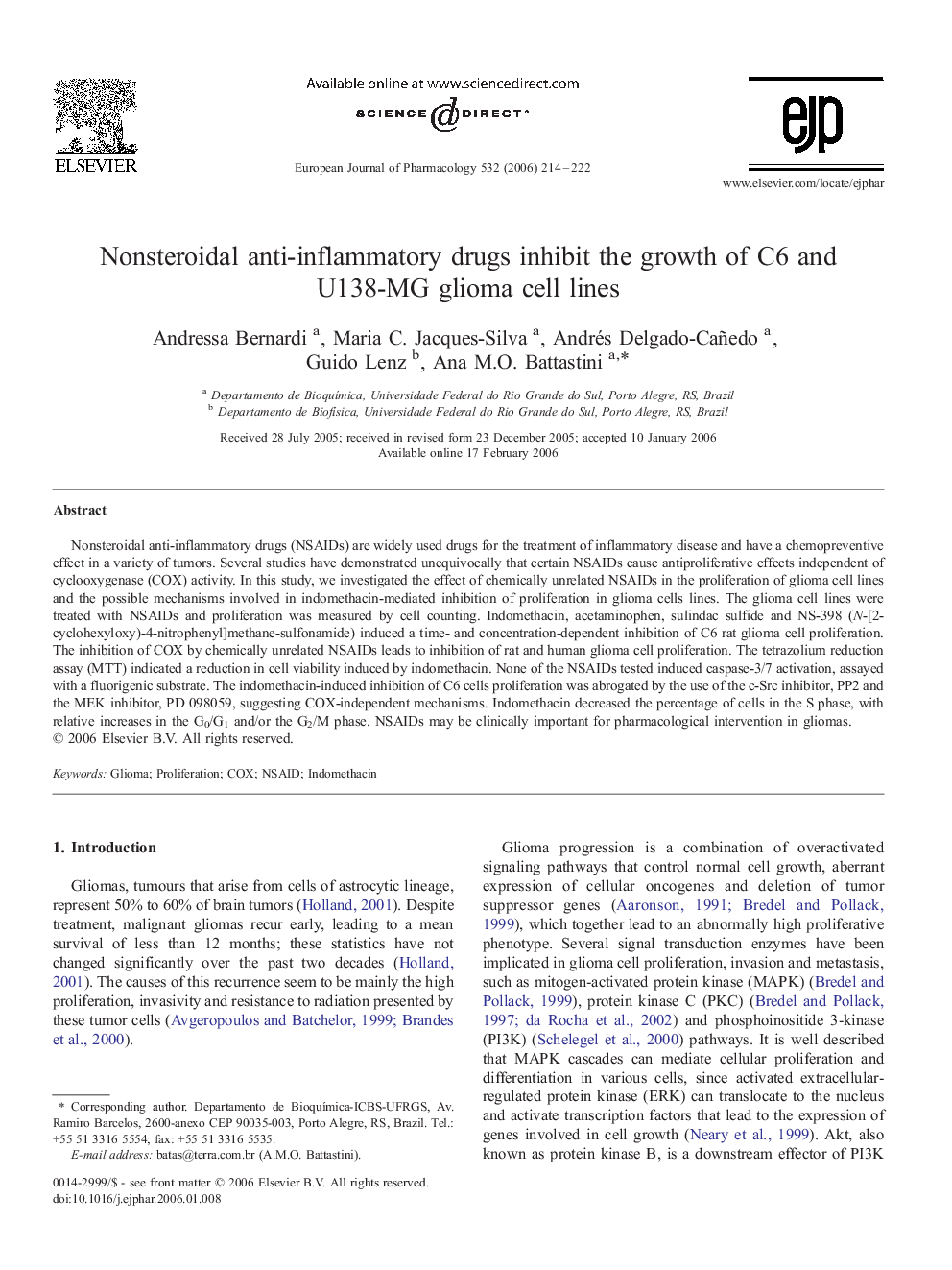| Article ID | Journal | Published Year | Pages | File Type |
|---|---|---|---|---|
| 2537372 | European Journal of Pharmacology | 2006 | 9 Pages |
Nonsteroidal anti-inflammatory drugs (NSAIDs) are widely used drugs for the treatment of inflammatory disease and have a chemopreventive effect in a variety of tumors. Several studies have demonstrated unequivocally that certain NSAIDs cause antiproliferative effects independent of cyclooxygenase (COX) activity. In this study, we investigated the effect of chemically unrelated NSAIDs in the proliferation of glioma cell lines and the possible mechanisms involved in indomethacin-mediated inhibition of proliferation in glioma cells lines. The glioma cell lines were treated with NSAIDs and proliferation was measured by cell counting. Indomethacin, acetaminophen, sulindac sulfide and NS-398 (N-[2-cyclohexyloxy)-4-nitrophenyl]methane-sulfonamide) induced a time- and concentration-dependent inhibition of C6 rat glioma cell proliferation. The inhibition of COX by chemically unrelated NSAIDs leads to inhibition of rat and human glioma cell proliferation. The tetrazolium reduction assay (MTT) indicated a reduction in cell viability induced by indomethacin. None of the NSAIDs tested induced caspase-3/7 activation, assayed with a fluorigenic substrate. The indomethacin-induced inhibition of C6 cells proliferation was abrogated by the use of the c-Src inhibitor, PP2 and the MEK inhibitor, PD 098059, suggesting COX-independent mechanisms. Indomethacin decreased the percentage of cells in the S phase, with relative increases in the G0/G1 and/or the G2/M phase. NSAIDs may be clinically important for pharmacological intervention in gliomas.
